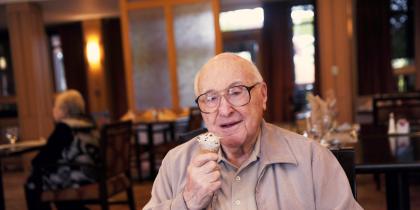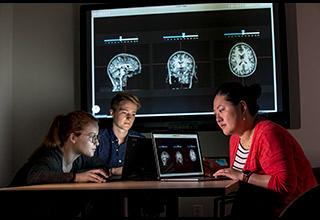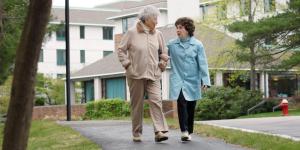Age is just a number. It’s your DNA that counts.
Could DNA hold the secret to how we age?

My grandfather lived to be 96-years-old, surviving mostly on red wine and M&Ms. He started smoking a pipe before World War II, and probably never saw the inside of a gym. He outlived two wives and one girlfriend, and died peacefully in his bed—without ever succumbing to an injury, illness or disability.
Many of us have a relative like this—a legendary figure who defies all odds in the race against time. And on the flip side, almost all of us have firsthand knowledge of someone on the opposite end of the spectrum – who ate all the right foods, never smoked, and exercised daily— only to die young, sometimes seemingly out of the blue.
So why is it that some people lead a perfectly healthy lifestyle and still die young, while others who shun healthy habits live to a ripe old age?
A recent study, conducted by 65 scientists in seven countries—including Hebrew SeniorLife’s Dr. Douglas Kiel—suggests that the answer may lie in our DNA.
The study, published in the journal Aging, analyzed DNA from more than 13,000 people across the United States and Europe, measuring the “aging rates” of each individual. Scientists calculated the aging of blood and other tissues by tracking methylation – a natural process that chemically alters DNA over time. By comparing chronological age to the blood’s methylation age, scientists could create a biomarker of the so-called “biologic age” that was associated with each person’s life expectancy above and beyond chronologic age.
What they found in a sample of women from the Women’s Health Initiative cohort study is that 5% of those women were aging at a faster biological rate than the rest, resulting in a shorter life expectancy. This level of accelerated aging rate increased these adults’ risk of death by close to 50%.
For example, two 60-year-old women, Mary and Jane, both smoke to deal with high stress. Mary’s aging rate ranks in the top 5% while Jane’s aging rate is average. The likelihood of Mary dying within the next decade is 75%, compared to 60% for Jane.
“In geriatric medicine, we are always struck by the difference between our patients’ chronological age and how old they appear physiologically,” said Hebrew SeniorLife’s Douglas Kiel, Director of the Hinda and Arthur Marcus Institute for Aging Research’s Musculoskeletal Research Center and Professor at Harvard Medical School. “This study validates the use of DNA methylation as a marker for biological age. And if we can prove that DNA methylation accelerates aging, we can hopefully devise strategies to slow that rate, and maximize a person’s years of good health.”
This preliminary finding may explain why some individuals die young – even when they follow a nutritious diet, exercise regularly, drink in moderation, and don’t smoke. But don’t put down your plate of spinach and reach for the Marlboro Lights just yet. While our rate of aging does play a role in our life expectancy, scientists caution that factors like smoking, diabetes, and high blood pressure still predict mortality even more strongly.
So for now, I guess I’ll stick to the gym, say no to cigarettes, and hope that Grandpa passed down some of that M&M resistant DNA.
Blog Topics
Learn More
Research on Aging
At the Hinda and Arthur Marcus Institute for Aging Research, Harvard Medical School-affiliated researchers are working to uncover answers to some of the most pressing challenges of aging.




